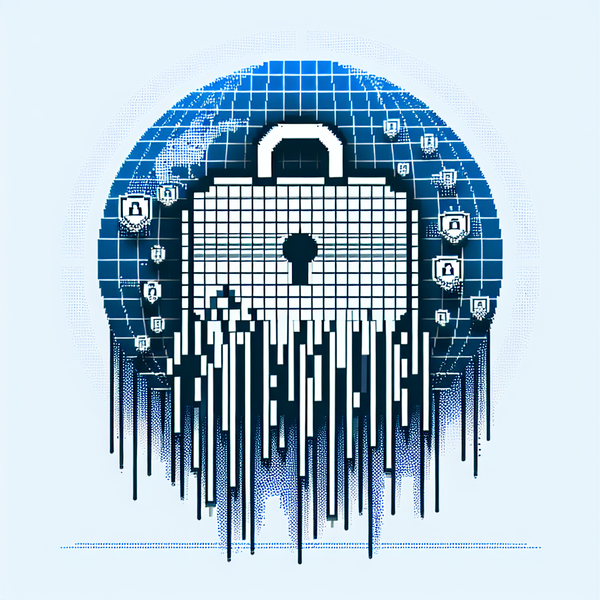Secret CISO 7/28: Dating App & ICAR Breaches Expose IDs & Research; AI's Dual-Use in Cyberattacks; Amazon & Microsoft Face New Threats

Welcome to today's edition of Secret CISO, where we unravel the tangled web of cybersecurity breaches and innovations. In a world where personal data is as valuable as gold, today's stories reveal the precarious balance between privacy and exposure.
We begin with a popular dating app that has inadvertently exposed 72,000 identity documents, including selfies and government IDs, due to lax security measures. This breach underscores the privacy risks inherent in mandatory age verification processes.
Meanwhile, the Indian Council of Agricultural Research faces a catastrophic data breach, threatening national agricultural research and exposing vulnerabilities in critical infrastructure.
In the healthcare sector, Think Big Health Care Solutions has suffered a breach compromising personal and health information, including Social Security Numbers, urging affected individuals to take protective measures.
On the governmental front, the National Reconnaissance Office confirms a network breach but insists no classified secrets were spilled, highlighting the persistent cybersecurity challenges faced by government agencies.
In a significant settlement, AT&T agrees to pay $177 million to customers affected by breaches that exposed Social Security Numbers, aiming to compensate those impacted.
On the innovation side, Vulnhuntr emerges as a new open-source tool to identify remotely exploitable vulnerabilities, while Carnegie Mellon researchers demonstrate AI's potential to autonomously plan and execute cyberattacks, showcasing AI's dual-use nature.
Amazon's code tool breach affects nearly one million users, prompting swift mitigation efforts, and a critical vulnerability in the AIIMS ORBO website is resolved, safeguarding voluntary organ donor data.
Finally, Microsoft users are advised to stay alert as sleeper cells targeting them are uncovered, despite a patch being issued.
Stay informed and vigilant as we navigate these complex cybersecurity landscapes together.
Data Breaches
- Popular dating app exposes 72,000 identity documents in security breach: A popular dating app has exposed 72,000 identity documents, including selfies and government IDs, due to inadequate security measures. This breach highlights significant privacy risks associated with mandatory age verification processes. Source: PPC Land
- ICAR Suffers Catastrophic Data Breach, Jeopardizing National Agricultural Research: The Indian Council of Agricultural Research (ICAR) experienced a severe data breach affecting its main website and crucial servers. This incident poses a threat to national agricultural research and highlights vulnerabilities in critical infrastructure. Source: The 420
- Think Big Health Care Solutions data breach exposes SSNs: Think Big Health Care Solutions has suffered a data breach that may compromise extensive personal and health information, including Social Security Numbers. Affected individuals are advised to check their status and take protective measures. Source: Claim Depot
- US spy satellite agency breached, but insists no classified secrets spilled: The National Reconnaissance Office (NRO) confirmed a breach of its networks, although it maintains that no classified data was compromised. This incident underscores the ongoing cybersecurity challenges faced by government agencies. Source: The Register
- AT&T is paying customers $177 million after data breaches exposed social security numbers: AT&T has agreed to pay $177 million to customers affected by data breaches that exposed Social Security Numbers. This settlement aims to compensate individuals whose personal data was accessed during the breaches. Source: AL.com
Security Research
- Vulnhuntr: Open-source tool to identify remotely exploitable vulnerabilities: Vulnhuntr is a new open-source tool designed to identify remotely exploitable vulnerabilities in software projects. The tool uses an engine that allows a large language model (LLM) to read each file in a project, enhancing the detection of potential security risks. Source: Help Net Security.
- Carnegie Mellon shows AI can autonomously plan and execute cyberattacks: Researchers at Carnegie Mellon have demonstrated that large language models (LLMs) can autonomously plan and execute cyberattacks. This research highlights the dual-use nature of AI, as similar techniques could be applied to improve defensive security measures. Source: EdTech Innovation Hub.
- Nearly 1 Million Users Affected by Amazon's Code Tool Breach: A breach in Amazon's code tool extension affected nearly one million users. External security researchers alerted Amazon to suspicious behavior, prompting an investigation and subsequent mitigation efforts. Source: The420.in.
- Critical vulnerability exposed sensitive data of voluntary organ donors: A critical vulnerability in the AIIMS ORBO website exposed sensitive data of voluntary organ donors. A security researcher resolved the issue, preventing a potential data breach and safeguarding donor privacy. Source: The Hindu.
- Microsoft users need to be on alert for sleeper cells: Vietnamese cybersecurity researcher Dinh Ho Anh Khoa uncovered sleeper cells targeting Microsoft users. Despite a patch being issued, users are advised to remain vigilant against potential threats. Source: Taipei Times.
Final Words
As we wrap up today's edition of Secret CISO, it's clear that the digital landscape is fraught with challenges and opportunities. From dating apps exposing identity documents to national research bodies facing catastrophic breaches, the importance of robust cybersecurity measures cannot be overstated. Each incident serves as a stark reminder of the vulnerabilities that exist, whether in personal data protection or critical infrastructure.
On a brighter note, tools like Vulnhuntr and advancements in AI research at Carnegie Mellon show promise in enhancing our defensive capabilities. These innovations highlight the dual-use nature of technology, offering both risks and solutions in the ever-evolving cybersecurity arena.
We hope you found today's insights valuable and thought-provoking. If you did, please consider sharing this newsletter with your friends and colleagues. Together, we can foster a more informed community, better equipped to tackle the cybersecurity challenges of tomorrow.
Stay vigilant, stay informed, and see you in the next edition of Secret CISO!




